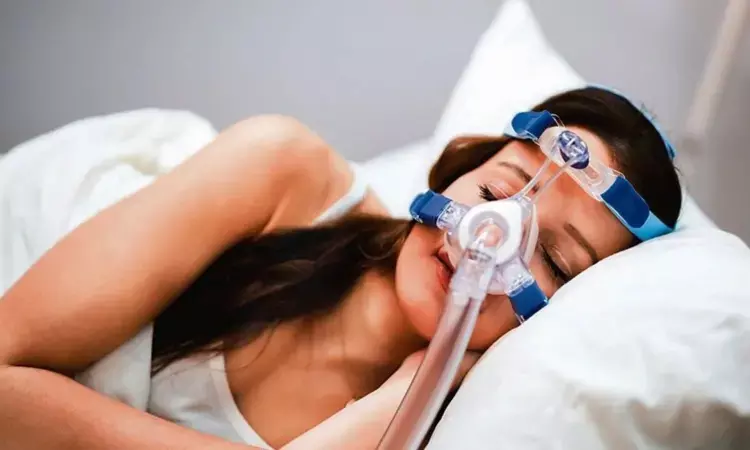- Home
- Medical news & Guidelines
- Anesthesiology
- Cardiology and CTVS
- Critical Care
- Dentistry
- Dermatology
- Diabetes and Endocrinology
- ENT
- Gastroenterology
- Medicine
- Nephrology
- Neurology
- Obstretics-Gynaecology
- Oncology
- Ophthalmology
- Orthopaedics
- Pediatrics-Neonatology
- Psychiatry
- Pulmonology
- Radiology
- Surgery
- Urology
- Laboratory Medicine
- Diet
- Nursing
- Paramedical
- Physiotherapy
- Health news
- Fact Check
- Bone Health Fact Check
- Brain Health Fact Check
- Cancer Related Fact Check
- Child Care Fact Check
- Dental and oral health fact check
- Diabetes and metabolic health fact check
- Diet and Nutrition Fact Check
- Eye and ENT Care Fact Check
- Fitness fact check
- Gut health fact check
- Heart health fact check
- Kidney health fact check
- Medical education fact check
- Men's health fact check
- Respiratory fact check
- Skin and hair care fact check
- Vaccine and Immunization fact check
- Women's health fact check
- AYUSH
- State News
- Andaman and Nicobar Islands
- Andhra Pradesh
- Arunachal Pradesh
- Assam
- Bihar
- Chandigarh
- Chattisgarh
- Dadra and Nagar Haveli
- Daman and Diu
- Delhi
- Goa
- Gujarat
- Haryana
- Himachal Pradesh
- Jammu & Kashmir
- Jharkhand
- Karnataka
- Kerala
- Ladakh
- Lakshadweep
- Madhya Pradesh
- Maharashtra
- Manipur
- Meghalaya
- Mizoram
- Nagaland
- Odisha
- Puducherry
- Punjab
- Rajasthan
- Sikkim
- Tamil Nadu
- Telangana
- Tripura
- Uttar Pradesh
- Uttrakhand
- West Bengal
- Medical Education
- Industry
Upper airway surgery bests CPAP for prevention of diabetes in Sleep apnea patients, claims study

Spain: In a comprehensive long-term follow-up study, researchers have uncovered significant differences in the risk of developing diabetes among patients with sleep apnea, depending on their treatment.
Analyzing the large data sets collected from healthcare organizations (HCOs) in Europe and globally, the researchers found that in patients with obstructive sleep apnea (OSA), upper airway surgery (UAS) can prevent the development of diabetes better than continuous positive airway pressure (CPAP). The study findings were published online in the Journal of Otolaryngology-Head & Neck Surgery.
Sleep apnea, a disorder characterized by interrupted breathing during sleep, has been linked to various health complications, including cardiovascular diseases and diabetes. However, the comparative effectiveness of different treatment options in mitigating these risks has remained debatable.
Led by Carlos O'Connor-Reina, Otorhinolaryngology Department, Hospital Quironsalud Campo de Gibraltar, Palmones, Spain, the study aimed to obtain a comprehensive view of the risk of developing diabetes in patients with obstructive sleep apnea and to compare this risk between patients receiving continuous positive airway pressure therapy versus upper airway surgery.
For this purpose, the researchers used local and the global-scale federated data research network TriNetX to obtain access to electronic medical records, including those for patients diagnosed with OSA, from healthcare organizations worldwide.
The following inferences were made using propensity score matching and the score-matched analyses of data for five years of follow-up.
- Patients who had undergone UAS had a lower risk of developing diabetes than those who used CPAP (risk ratio 0.415).
- The risk for newly diagnosed diabetes patients showed a similar pattern (hazard ratio 0.382).
- Both therapies may protect against diabetes (Risk 0.081 after UAS vs. 0.195 after CPAP).
In conclusion, CPAP and UAS can prevent the development of new-onset diabetes in patients with obstructive sleep apnea. Both treatments reduced the incidence of diabetes in OSA patients above 18 years and with a follow-up of 5 years. However, upper airway surgery seems to have a stronger preventive effect than CPAP.
"In our study, it is significant for the differences between sex, age, and the presence of comorbidity between both cohorts before matching, as it was expected due to UAS treatment being preferred in patients younger and healthy," the researchers wrote.
Reference:
Alcala, L. R., Ignacio, J. M., García Iriarte, M. T., Llatas, M. C., Casado Morente, J. C., Alvarez, I. M., Ibarburu, G. H., Baptista, P., & Plaza, G. (2023). Risk of diabetes in patients with sleep apnea: Comparison of surgery versus CPAP in a long-term follow-up study. Journal of Otolaryngology - Head & Neck Surgery. https://doi.org/10.1186/s40463-022-00616-3
Dr Kamal Kant Kohli-MBBS, DTCD- a chest specialist with more than 30 years of practice and a flair for writing clinical articles, Dr Kamal Kant Kohli joined Medical Dialogues as a Chief Editor of Medical News. Besides writing articles, as an editor, he proofreads and verifies all the medical content published on Medical Dialogues including those coming from journals, studies,medical conferences,guidelines etc. Email: drkohli@medicaldialogues.in. Contact no. 011-43720751


